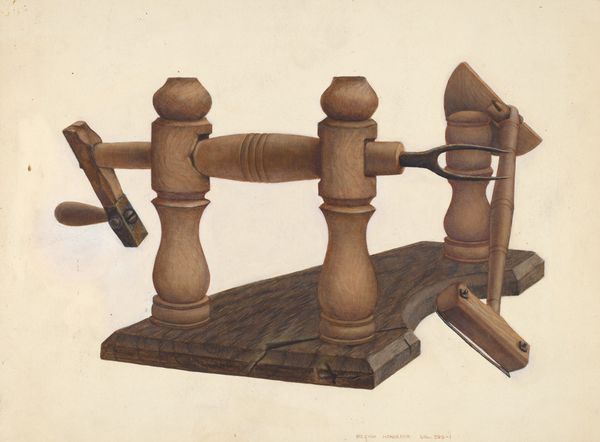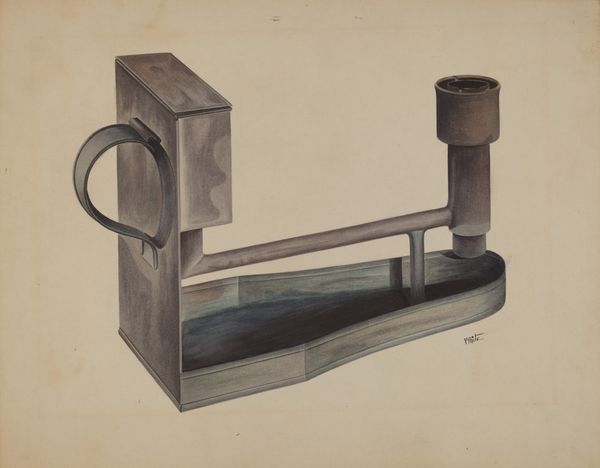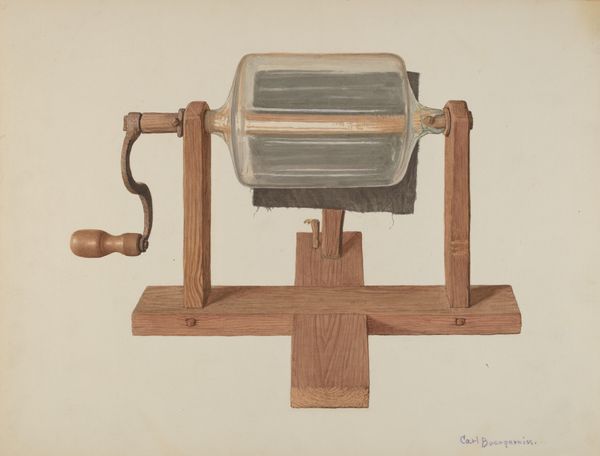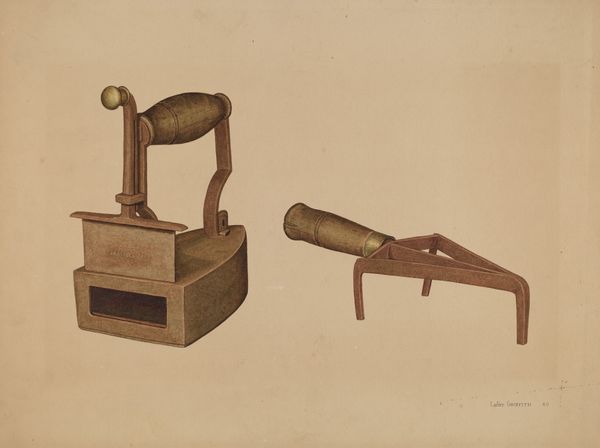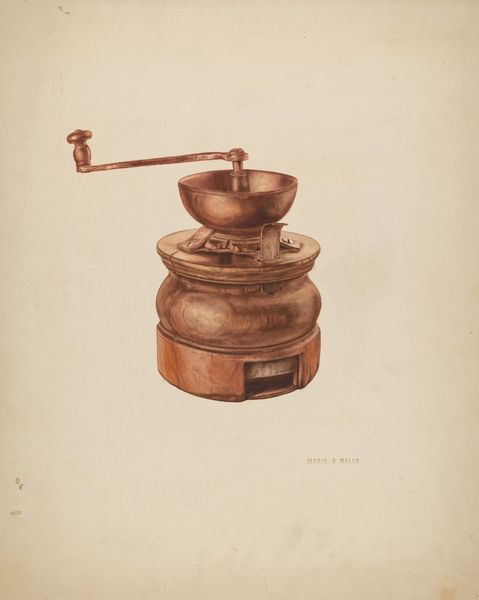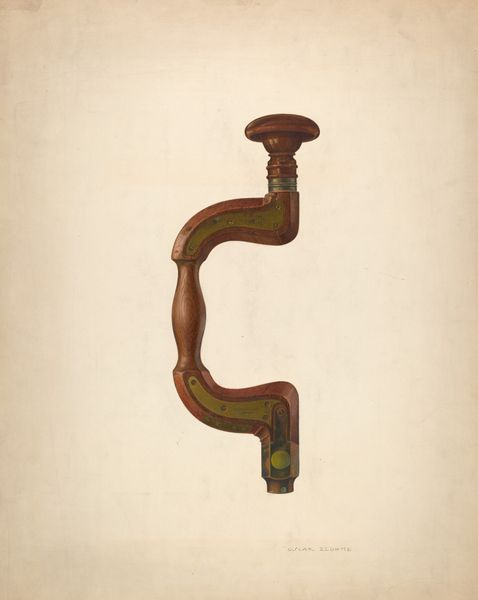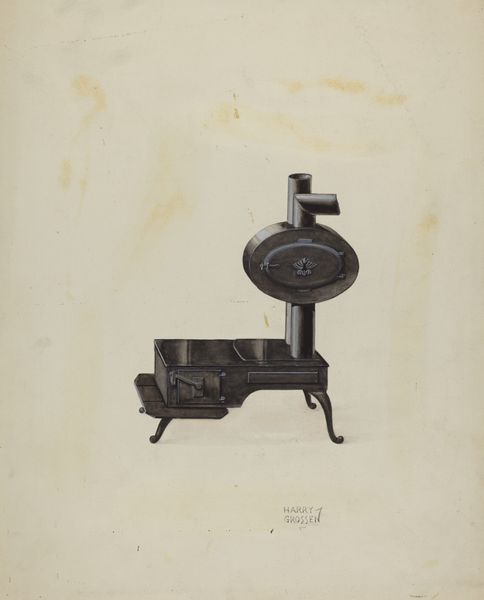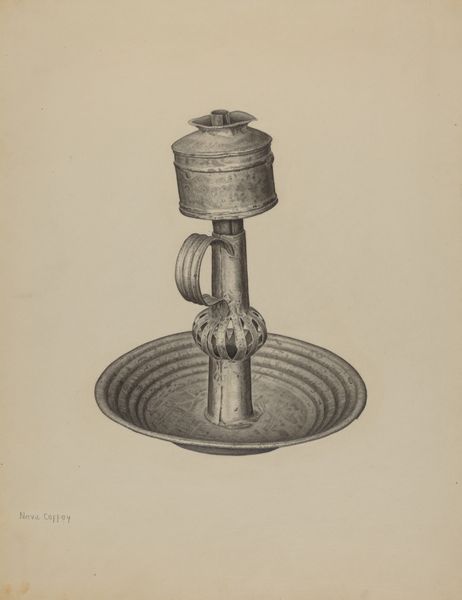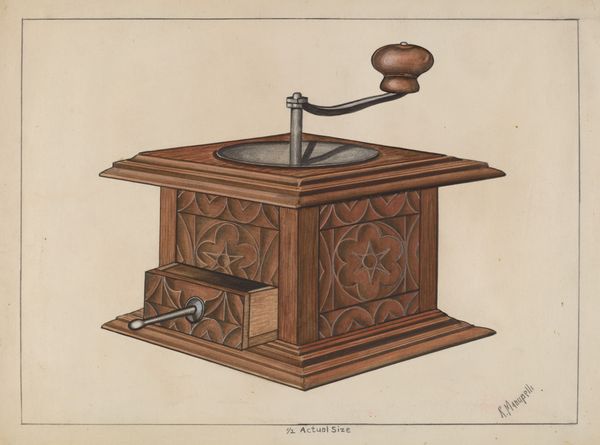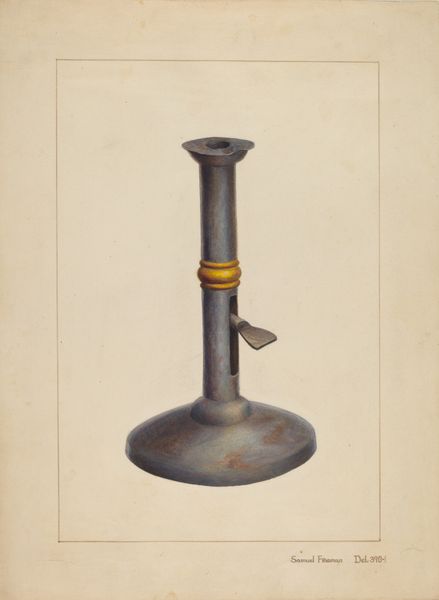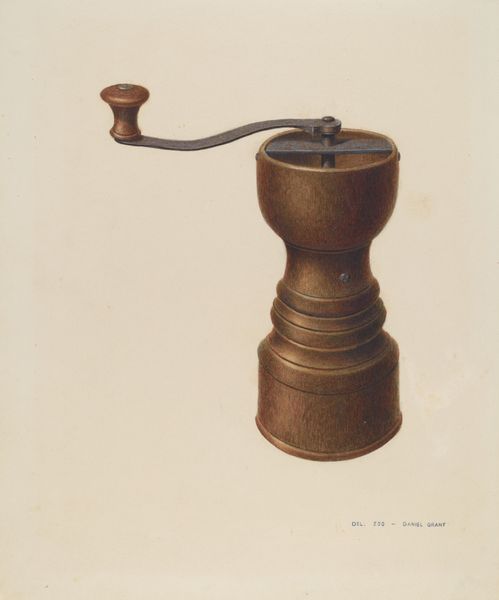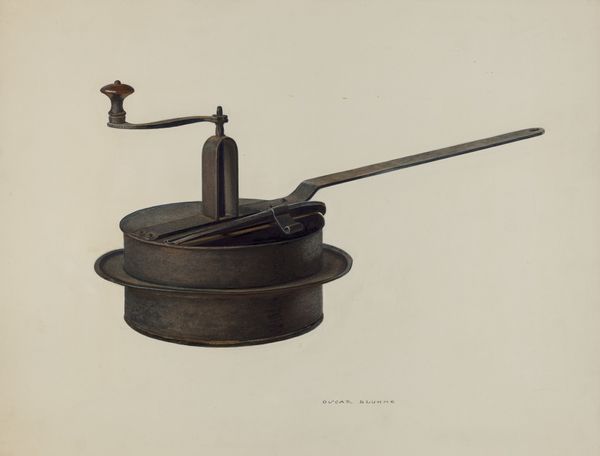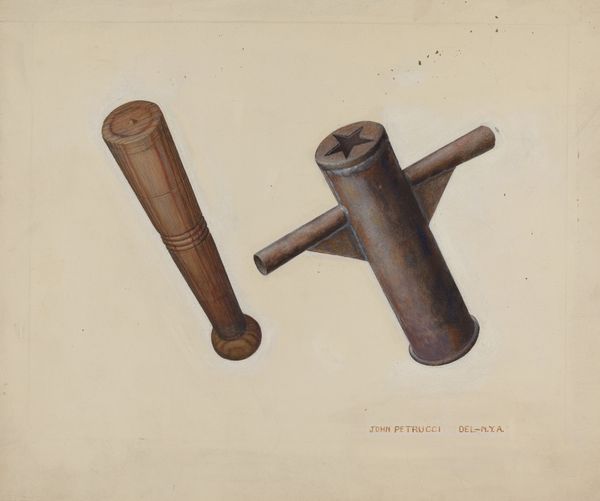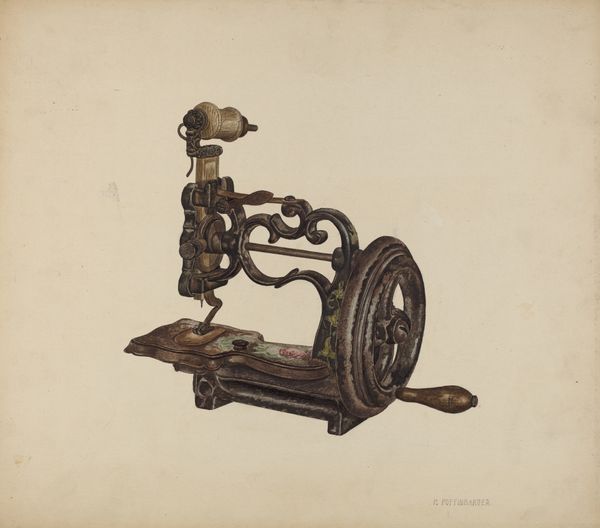
drawing
#
drawing
#
aged paper
#
toned paper
#
light pencil work
#
pencil sketch
#
charcoal drawing
#
pencil drawing
#
coloured pencil
#
portrait drawing
#
watercolour illustration
#
watercolor
Dimensions: overall: 22.4 x 30.5 cm (8 13/16 x 12 in.) Original IAD Object: overall: 7 1/2" high; 30" long; cutting arm: 10" long; turning arm: 7" long; posts: 6" high; large pulley: 8" in diameter; 1 1/8" thick; small pulley: 3" in diameter; 1" thick
Copyright: National Gallery of Art: CC0 1.0
Curator: Here we have Samuel W. Ford’s "Apple Peeler," likely completed between 1935 and 1942. What strikes you first about this piece? Editor: It's the quiet stillness of it all. The subdued colors, the meticulous rendering... there's a real sense of focused observation, but without high drama. A certain humbleness? Curator: Yes, "humble" resonates. Ford worked for the Index of American Design, a WPA project documenting decorative and folk arts. These renderings served as historical records but also provided work for artists during the Depression. It underscores the value the government placed on preserving cultural memory, especially crafts tied to earlier American ingenuity and domestic life. Editor: Ingenuity is key. The object is quite striking – a rhythmic interplay of cylinders and right angles. The rendering also has a touch of abstraction with geometric volumes defined by the use of tone and color to suggest depth and roundness. Curator: The artist meticulously documented this fairly commonplace object. It reflects a time of transition, acknowledging simpler, pre-industrial means while the nation grappled with a changing economy and anxieties around technology. The choice of subject perhaps underscores the value of craft in a rapidly industrializing world. Editor: Absolutely. And from a purely visual perspective, I'm drawn to the artist's handling of light. The soft gradations give the wood texture an almost palpable quality, and the toned paper gives it a beautiful warmth. There is careful consideration and rendering of a singular moment captured by a fleeting light. Curator: This detailed focus elevates something ordinary, turning it into a portrait of a bygone era and its tools. Editor: Agreed. What seemed like a mundane illustration opens into so much more. The rendering highlights its intrinsic qualities in a time capsule effect. Curator: A subtle statement about the things we choose to remember and value. Editor: It truly captures both a specific object and a mood of quiet appreciation. Thank you for putting its cultural context into focus, really changing my reading of the artwork.
Comments
No comments
Be the first to comment and join the conversation on the ultimate creative platform.
